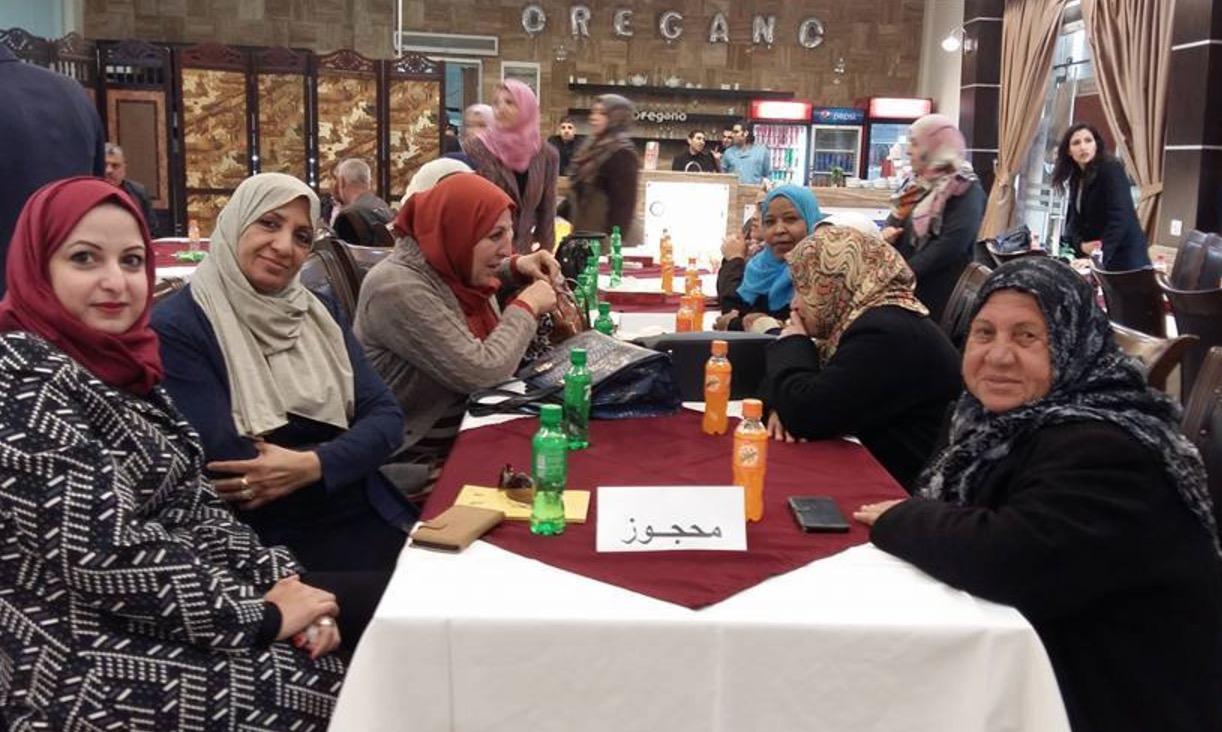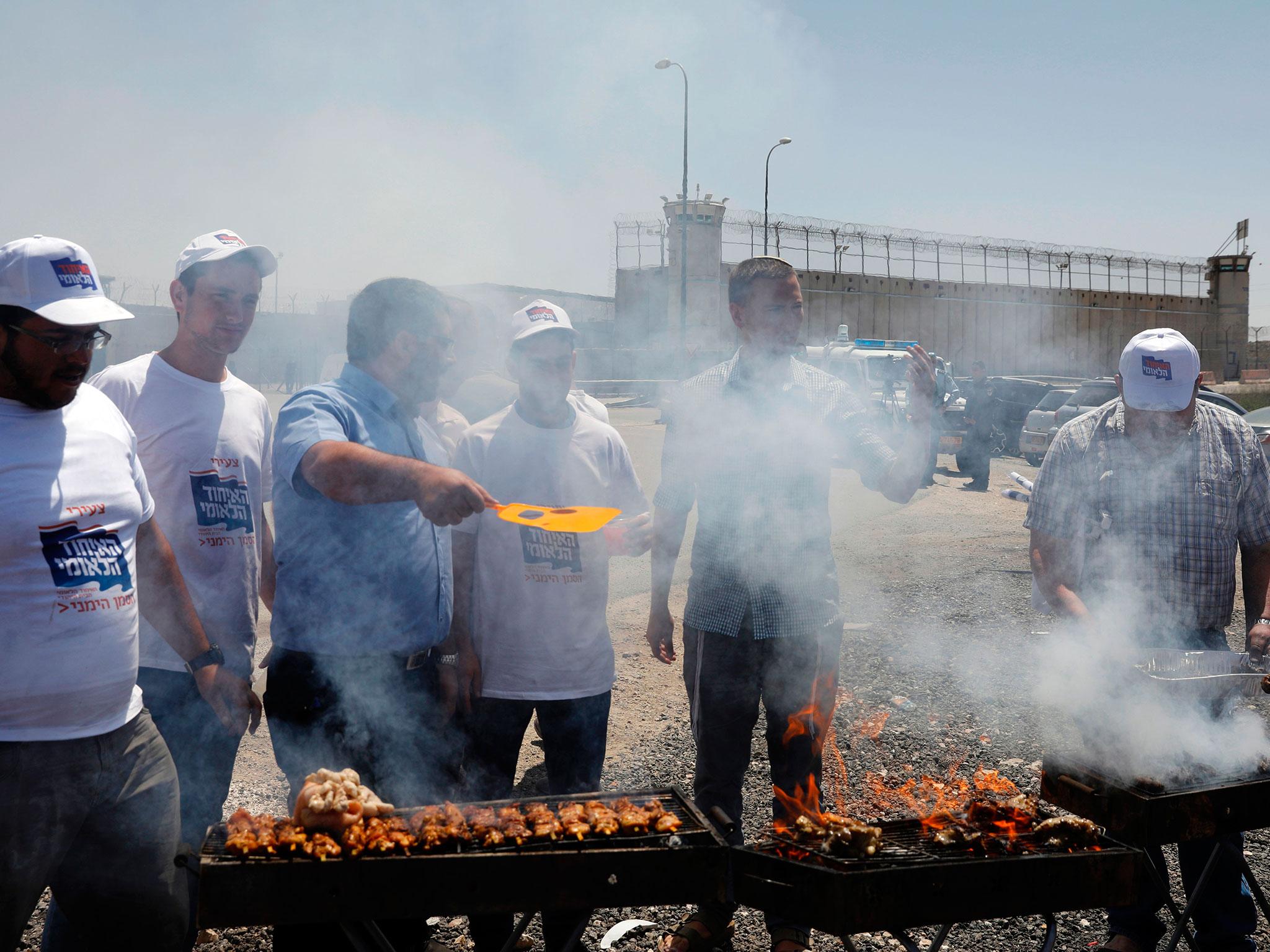Restaurants in Gaza only serve salt water in solidarity with hunger strikers
Palestinian prisoners protesting conditions in Israeli jails enter second month of strike amid allegations leader was caught on film eating

Hotels and restaurants in the Gaza Strip recently took everything off the menu except salt water in solidarity with the estimated 1,600 Palestinian prisoners currently on hunger strike to protest conditions in Israeli jails.
Staff at fifty establishments wore uniforms reading ‘salt and water’ and ‘honour for dessert’ during a day long stunt earlier this month, Salah Abu Hassireh, head of the Palestinian Committee for Restaurants, Hotels, and Tourist Services told local media.
Online, a social media campaign called the ‘salt water challenge’ has attracted the attention of millions after Palestinian pop star Mohammed Assaf downed a glass in a YouTube video, spurring on thousands more to take part.
Issa Qaraqe, head of detainees' affairs for the Palestinian Authority (PA), estimates that 1,600 are currently taking part in the strike, which began 17 April - Palestinian Prisoners’ Day.
The ‘Freedom and Dignity strike’ is over several issues ranging from access to telephones and lawyers, to better medical care, to ending solitary detention.
Around 6,500 Palestinians are currently detained in Israeli prisons, most for terrorism convictions, although Palestinian leaders and prisoners’ groups maintain that many have been unfairly tried or are political prisoners.
A further 500 are detained under what is known as Administrative Detention, which allows suspects to be held without charge for six month intervals.
The issue strikes a sympathetic chord across all sections of Palestinian society; according to Palestinian estimates, disputed by Israel, 750,000 people have at one point or another in the last 50 years been imprisoned by the Israeli state, affecting seven out of ten families.
There have been several hunger strikes mounted in the past, but never on so large a scale.
The Israeli authorities have condemned the protest. Shortly after the strike began Public Security Minister Gilad Erdan told Army Radio that the striking inmates were “terrorists and incarcerated murderers who are getting what they deserve.”
The current initiative is being led by Marwan Barghouti, a Palestinian leader jailed by Israel for life for five murders.
Barghouti, who is popular in both Gaza and the West Bank and is sometimes touted as a future successor to incumbent Palestinian Authority President Mahmoud Abbas despite his multiple sentences, has been placed in solitary confinement for his role in the strike.
Last week Israel’s prison service released surveillance video footage from 27 April and 5 May in which Barghouti was shown moving around inside his cell before allegedly eating cookies from an envelope, and a snack bar.
“This hunger strike was never about the conditions of the convicted terrorists, which meet international standards,” Mr Erdan said in a statement.
“Barghouti is a murderer and hypocrite who urged his fellow prisoners to strike and suffer while he ate behind their back.”

Fadwa Barghouti, the leader’s wife, as well as the Palestinian Prisoners’ Club, have denounced the footage as doctored.
Barghouti's lawyer said on Sunday that his client denied the authenticity of the video, pointing out the cell shown was cleaner and bigger than the one he resides in.
A representative for the hunger strikers said last week that at least one faction is considering refusing water if their demands continued to go unmet.
Israel’s prison service has said it will set up a field hospital to treat hunger strikes if necessary.
A 2015 law made it legal for civilian hospitals to force-feed protesters, but they have to date refused to do so.
Join our commenting forum
Join thought-provoking conversations, follow other Independent readers and see their replies
Comments